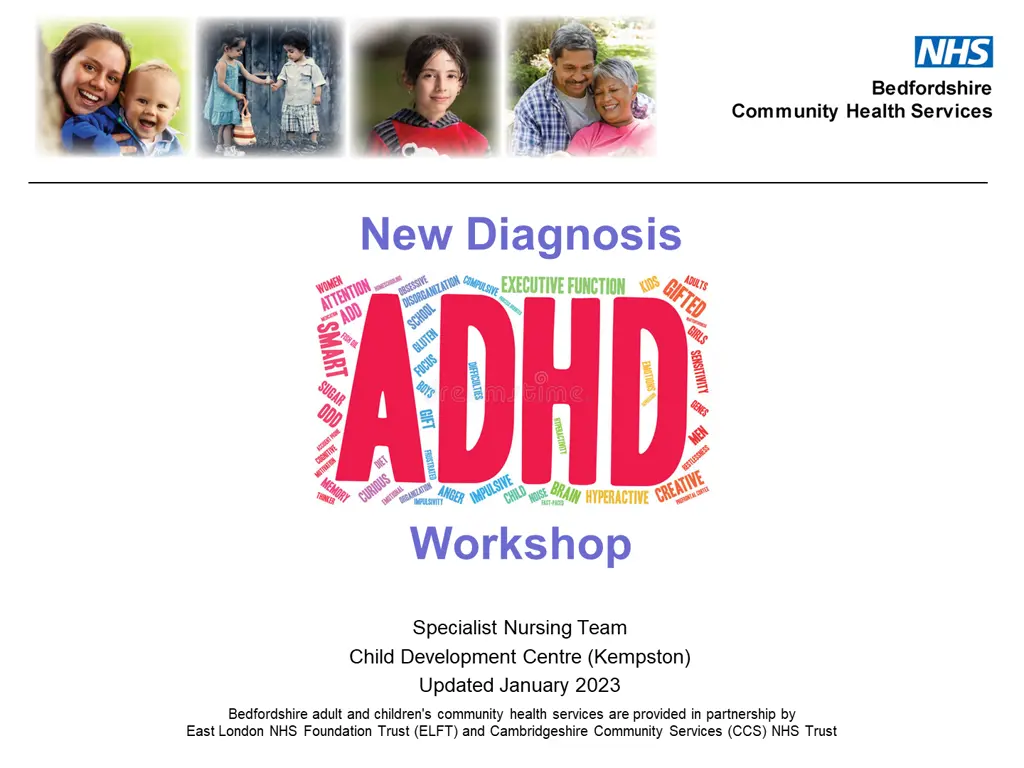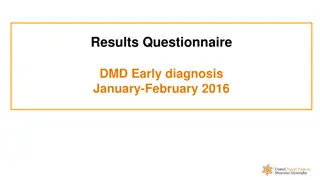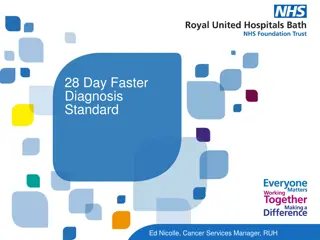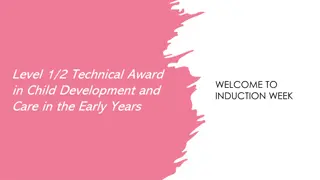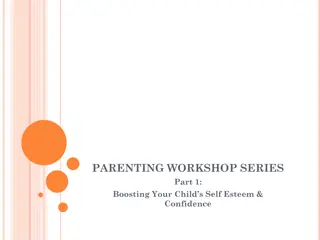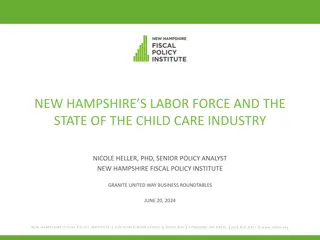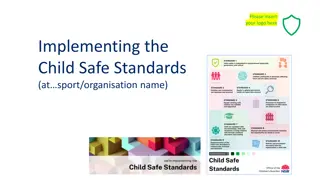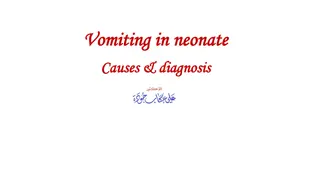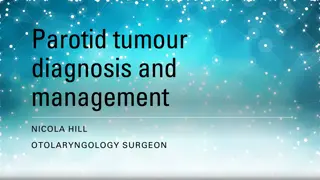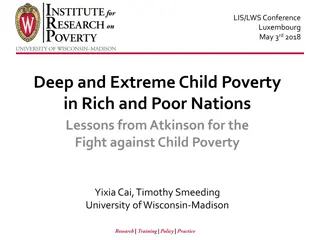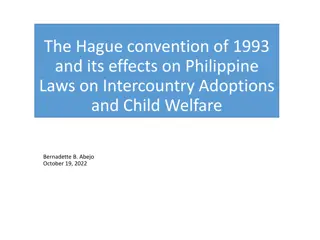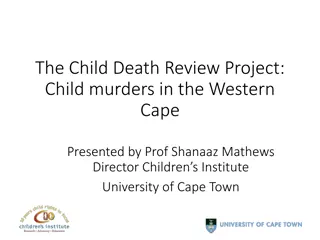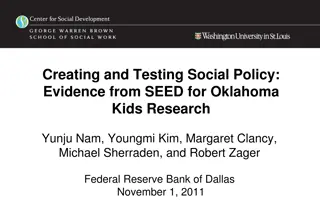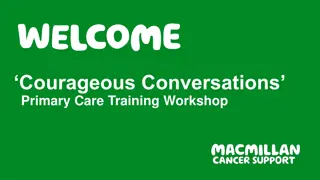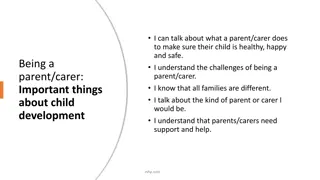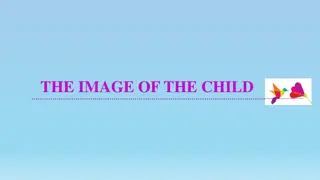New Diagnosis Workshop: Child Development Insights
Join us at Kempston Child Development Centre for specialist insights and discussions on new diagnoses. Presented by a skilled nursing team, participants can interact, ask questions, and share experiences in this informative workshop. Confidentiality is vital.
Download Presentation

Please find below an Image/Link to download the presentation.
The content on the website is provided AS IS for your information and personal use only. It may not be sold, licensed, or shared on other websites without obtaining consent from the author. Download presentation by click this link. If you encounter any issues during the download, it is possible that the publisher has removed the file from their server.
E N D
Presentation Transcript
New Diagnosis Workshop Specialist Nursing Team Child Development Centre (Kempston) Updated January 2023 Bedfordshire adult and children's community health services are provided in partnership by East London NHS Foundation Trust (ELFT) and Cambridgeshire Community Services (CCS) NHS Trust
Please turn your microphones onto mute when you are not speaking. This is approximately a 2 hour presentation. There will be a break half way through. Please feel free to ask questions, share experiences and ideas by raising a hand writing in the chat, whatever you are comfortable with. Please be aware that examples used and any personal information/examples given in the workshop should be treated as confidential.
With special thanks to Dr C Yemula, Senior Community Consultant Paediatrician. Caroline Lewis - Neurodevelopmental Disorders Specialist Nurse ASD Sarah Holmes Specialist Early Intervention Practitioner. Sheryl Walsh - Clinical Nurse Specialist - ADHD Kathryn Cope - Clinical Nurse Specialist - ADHD Mary Maher-Ngwang Clinical Nurse Specialist ADHD Kim Gordon - Clinical Nurse Specialist ADHD Sally Carmichael - Clinical Nurse Specialist ADHD Amanda Carter- Clinical Nurse Specialist ADHD SEND/Advisory Teacher Georgina Welch Nurse Associate: Linda Bazeley Specialist Community Nursery Nurses: Sharon Albone (Early Intervention) Elizabeth Taylor Donna Deane Community Support Worker: Gurdip Josan Linda Jones Also written by Darrin Lowe Clinical Nurse Specialist no longer with the trust.
A Few Familiar Faces Keanu Reeves Will-I-Am Cher
Prevalence Just How Common Is ADHD?
King's College London: Neurobiology Animation https://youtu.be/4r3XWj269_g
Cortical Maturation Neurobiology of ADHD
ADHD IS NOT ADHD IS A recognised medical condition Caused by poor parenting A difference in brain structure and development Often caused by genetics and runs in families A result of poor diet Caused by stressful or upsetting events
ADHD is NOT NOT: A child s lack of motivation Laziness A child s lack of will power Inadequate parenting A child s lack of Intelligence Naughty Boy/Girl Syndrome
The Challenges of ADHD Challenges can change at different ages and stages of development. We are all unique and we all experience things differently. Scaffolding our young people with support, strategies and positivity to minimise the impact is key. Be pro-active, be observant, and seek support.
Hyperactivity Fidgety Inattention Impulsivity 1. 1. Careless mistakes 1. Blurts out answers before questions are completed 2. Difficulty sustaining attention 2. Unable to stay seated 2. Interrupts games or conversations 3. Seems not to listen 3. Moving excessively 4. Fails to finish tasks 3. Difficulty awaiting turn 4. Noisy in play 5. Avoids tasks requiring sustained attention 4. Engaging in reckless or risky behaviours without thinking about the consequences 5. On the go 6. Difficulty organising 7. Loses things 6. Talks excessively 8. Easily distracted
ADHD Presentation In Pre-schoolers Other things to consider Communication and developmental difficulties. Often too young to diagnose as these could be seen as typical behaviours in young children. Sleep, sensory sensitivities, and oppositional behaviour.
ADHD Presentation In Teenagers High degree of comorbidity - conduct disorder, impaired moral judgement, poor choices regarding personal relationships, mental health issues, easily led, sleep disorders, drug and alcohol use to be considered. Can be difficult to engage, not wanting to take medication, not wanting to be different to their peers, not wanting to try strategies.
Causes of sleep difficulties Poor sleep practices Comorbid anxiety Disorders / Low mood Dysregulation of arousal and circadian rhythm ADHD and Sleep difficulties Medical conditions eg asthma ADHD medication Sleep Disorders
Sensory differences. Occupational Therapy Sensory Processing Awareness Training - https://www.cambscommunityservices.nhs.uk/Bedfordshire/servic es/occupational-therapy/sensory-processing-awareness-training
Bedfordshire adult and children's community health services are provided in partnership by East London NHS Foundation Trust (ELFT) and Cambridgeshire Community Services (CCS) NHS Trust
How to find support - Your directories. The Local Offer Every Local Authority in the UK has a Local Offer. Diagnosis Support Pack https://www.cambscommunityservices.nhs.uk/beds-luton-community- paediatrics/diagnosis-support-pack
Where to go for support.. The Local Offer. Health Child Emotional Well- being/mental health School and education The community Development Centre (CDC) Early Help Assessments, Support groups, Services National and Local support 0-19 team The Council SEND IAS and SEND Inclusion and intervention services through the council CAMH and CHUMs for local support 0-19 team Nurse advice line at the CDC workshops National services, websites, APPs. 111 and in emergency 999/A&E. CDC for Health assessments and reviews. Specialist Services and charities under each council specifically for school. Parent Carer forums, Carers Bedfordshire GP s 0-19 team and specialist services
Things to consider Teaching skills may not be enough. The key is to design environments around the child/young person to support their Executive Functioning. The most effective rewards and consequences are immediate. Provide reinforcements / rewards for achieving goals maintain positive reinforcements. Please remember when a reward is removed the behaviour may return, as these reinforcements primarily address the motivational challenges of ADHD. These strategies are reasonable adjustments.
Working with others As parents/carers you must build the scaffolding around your child with others (schools, therapists, etc, etc). Building positive relationships with school SENDCOs and Leadership teams as you will need their support to build and redesign the environment around the individual. You will need their compassion and willingness to achieve this. This can be an enduring condition, that will need this scaffolding maintained every day. Some individuals will learn strategies to lessen the effects of the Neurodevelopmental condition however the vast majority in some shape or form will carry this into adulthood.
Refuelling the emotional tank Use rewards and positive emotions. Use of self statements of effectiveness such as I / we can do this , the pep talk helps boast motivation. Frequent breaks (10mins) and doing other fun tasks during this time but not too much fun that they will not want to transition back to home work. 3 plus minutes of meditation. (10 to 3 minute rule. 10mins work, 3 minutes relaxation) Visualising the reward (as long as reward is immediately after task) Aerobic physical activity will refuel the tank and the more you do creates a bigger tank https://www.youtube.com/watch?v=_tpB- B8BXk0&list=PLxCstTh_vXPsb449NC7DhiNCqiCmyWaTF&index=9&t=293s
We are all different https://www.youtube.com/watch?v=Oiv0kIc01Ys
Whats behind the behaviours? Because they re a kid? To annoy you? Developmental?
Strategies Make time real through clocks, timers, egg times, sand timers, etc, in the visual field of the individual. Again so the individual can see the passage of time. Get their attention before giving instruction, keep instructions short. Individuals are dependent on the environment for motivation. This has to be externalised for the individual. This is why video games are so addictive to many of our CYP as they provide continual external stimulus and that is why most homework never gets started or completed, as it doesn t provide that stimulus.
Homework Break work into chunks. When there is a lot of work or information on a page you could cover up sections. So its not too overwhelming with too much information on one sheet. Homework needs internal motivation which most of the CYP have issues with. You will need to negotiate with the CYP and put reinforcements into the strategy. When the homework will get done, how much, how long to work on it and what is the pay off. Always try to give practical or manual assistance to work things out. CYP will find moving and storing information in their minds difficult so use visual aids, calculators, pen and paper to write solutions out, etc. As well as enabling fidgeting! By the time your CYP comes home their emotional fuel tank may be exhausted and even thinking about doing homework may be impossible.
Social situations Sometimes this can be difficult, especially to explain. Role play can be fun. Any social mishaps can be explained and talked about later, and solutions can be found for what might work next time. Comic Strips by Carol Gray. Be sensitive and kind, being selective on feedback being mindful of their self esteem. Praising what they have done well. Encouraging special interests/hobbies. Most children will learn how friendships work, nothing wrong with having a few good friends. Consider an informal mentor or buddies.
Visuals and sensory support Every family is different, find strategies that work for you and your family. Involve your child, they will feel part of the solution. Keep it simple and add to it as you go. Use visual timetable; lists; countdown or calendar, or audio reminders. Put visuals in a prominent place. Refer to it throughout the day. Make a tool kit for out and about.
NICE Guidelines Medication is not usually recommended for pre-school children. Parent/carer information and a holistic approach is the first line treatment. ADHD Medication can be used when strategies do not seem enough. This is a very individual decision. ADHD medication is used along side all the other strategies. Treatment response forms can be a good way of monitoring and helping to make decisions about what strategies are working / or where the challenges are and if medication would like to be trialled. https://www.cambscommunityservices.nhs.uk/beds-luton- community-paediatrics/diagnosis-support-pack/adhd- medication/how-does-medication-work
Medications Medication (cambscommunityservices.nhs.uk)
A message from some of our families https://www.cambscommunityservices.nhs.uk/beds-luton-community- paediatrics/diagnosis-support-pack/Neuro-diversities
Resources Books for boys and girls Bedfordshire adult and children's community health services are provided in partnership by East London NHS Foundation Trust (ELFT) and Cambridgeshire Community Services (CCS) NHS Trust
Books for parents Bedfordshire adult and children's community health services are provided in partnership by East London NHS Foundation Trust (ELFT) and Cambridgeshire Community Services (CCS) NHS Trust
Free resources for Parents/carers Bedfordshire adult and children's community health services are provided in partnership by East London NHS Foundation Trust (ELFT) and Cambridgeshire Community Services (CCS) NHS Trust
Exam Access Arrangements https://www.ukadhd.com/jcq.htm https://www.autism.org.uk/about/in-education/exam-guidance.aspx https://www.jcq.org.uk/exams-office/access-arrangements-and-special- consideration Bedfordshire adult and children's community health services are provided in partnership by East London NHS Foundation Trust (ELFT) and Cambridgeshire Community Services (CCS) NHS Trust
Courses https://www.futurelearn.com/courses/understanding-adhd developed by Kings College London. https://www.derby.ac.uk/short-courses-cpd/online/free- courses/understanding-autism-aspergers-and-adhd/ developed by University of Derby and endorsed by ADHD Foundation. Bedfordshire adult and children's community health services are provided in partnership by East London NHS Foundation Trust (ELFT) and Cambridgeshire Community Services (CCS) NHS Trust
Videos http://adhd-institute.com/burden-of-adhd/aetiology/neurobiology/ The Neuroanatomy of ADHD and thus how to treat ADHD https://www.youtube.com/watch?v=sPFmKu2S5XY&list=PLxCstTh_vXPs b449NC7DhiNCqiCmyWaTF&index=9 This is how you treat ADHD based off science, Dr Russell Barkley part of 2012 Burnett Lecture https://www.youtube.com/watch?v=_tpB- B8BXk0&list=PLxCstTh_vXPsb449NC7DhiNCqiCmyWaTF&index=8 Bedfordshire adult and children's community health services are provided in partnership by East London NHS Foundation Trust (ELFT) and Cambridgeshire Community Services (CCS) NHS Trust
